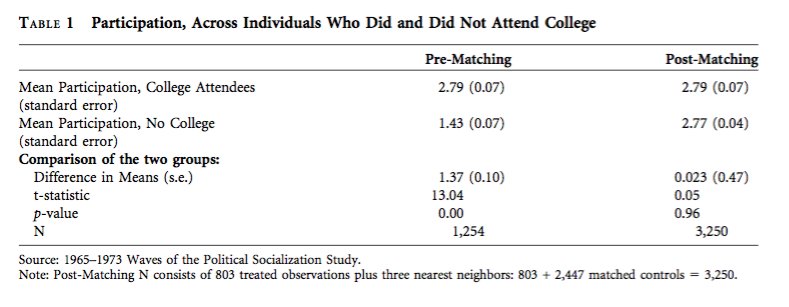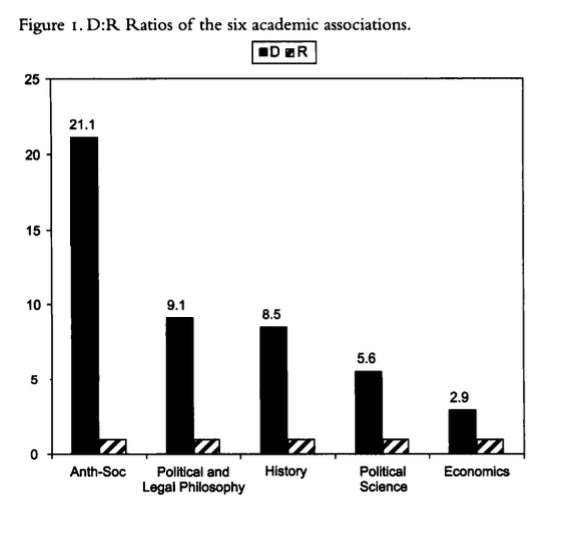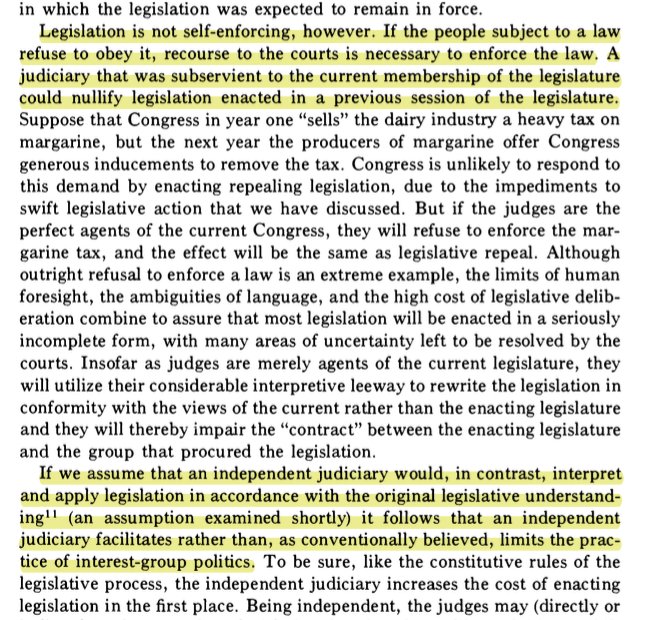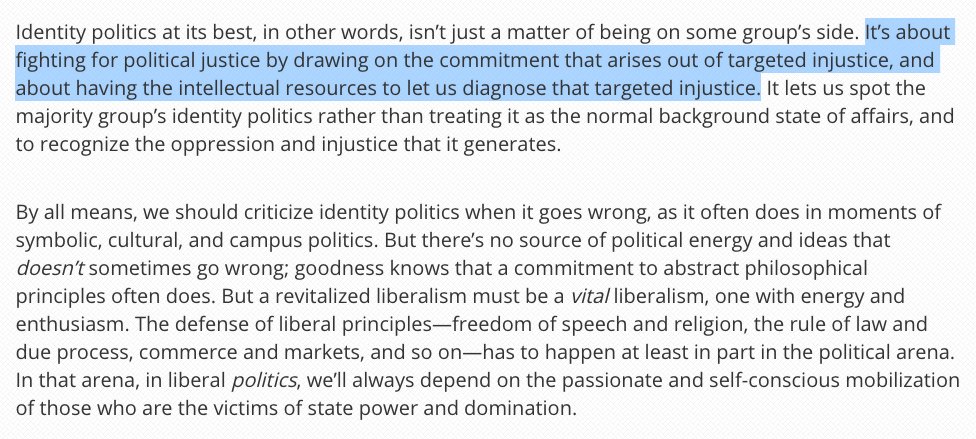
Lecturer at Acadia University. Judicial politics, authoritarianism, Islamic law. Specializing in Sudan/Egypt. Occasionally free speech on campus issues as well.
How to get URL link on X (Twitter) App



https://twitter.com/JeffreyASachs/status/1042814243949764608
https://twitter.com/JeffreyASachs/status/1042818186230550528The findings:

https://twitter.com/JeffreyASachs/status/1042814243949764608This thread is trying to figure out whether, if the imbalance exists, we should care. Sunstein worries that it's going to impact faculty research and student learning. Is he right?


https://twitter.com/robbysoave/status/1036747860371550224This happens in the context of college campus speakers more than you might think. Example: UCLA College Republicans disinvited Milo to one of their events after being importuned by their faculty advisor.
https://twitter.com/jessesingal/status/1033078145476440065Because we can all intuitively recognize and sympathize with the core complaint that the "explaining as labor" folk are making. Think of your own life, of those times when someone operating in bad faith, or perhaps just from a position of incuriosity, imposes on your intellect.

https://twitter.com/hdxacademy/status/1030084152492806144I’ve noticed Hdx members make this point (concession?) quite a bit lately. I find it baffling, especially considering the stress Hdx has placed in the past on opinion data from FIRE, Cato, and Knight, to say nothing of its own survey. More needs to be said about this, please.


https://twitter.com/SeanTrende/status/1028288091533004800After all, the people who know are regime insiders, and why would they ever want to expose one of their own?
https://twitter.com/jtlevy/status/1026519325484769280For instance, 36 graduates of Ave Maria signed a petition last spring calling on the university to drop Betsy DeVos as the commencement speaker. This gets counted as a disinvitation attempt, equal in weight to what happened to Murray at Middlebury.
https://twitter.com/minzlicht/status/1025422554675048449I really hesitate to say which “side” is being terminated at a greater rate. First, in many cases it’s cons terminating cons: eg admin at a religious institution firing a conservative prof for not be *as conservative* as the school. Same happened with liberals.
https://twitter.com/JonHaidt/status/1025083451945508867Most of us spend most of our time in spaces where we have few (if any) rights to free speech. This seems to me to be problematic from the perspective of democratic health, and should be taken *at least* as seriously as issues surrounding speech on campus.
https://twitter.com/EdWhelanEPPC/status/1024690583871414277Now I know what you're thinking: "Jeff, a cursory glance at the historical record reveals many other political moments just like this one. You're just making up a new rule out of thin air."
https://twitter.com/OsitaNwanevu/status/1024433711058706432You know how I know they grok cultural appropriation? The Met Gala.
https://twitter.com/glukianoff/status/1022933321448415243That said, just a few quick points.
https://twitter.com/AdGo/status/1022588383602909184
https://twitter.com/JeffreyASachs/status/1022606484935331842

https://twitter.com/MattGrossmann/status/1022525948707696642First, we don't know if it's costing them more votes than it's gaining. Jettisoning ID politics may help Dems win back some white suburbanites, but what if it depresses turnout in the blue cities driving the party's red state gains?





https://twitter.com/ebruenig/status/1018834334235676672Are we supposed to believe that white Americans would be able to diagnose the opioid crisis, possess the political vocabulary to describe it, and the identify the strategy to address it, without a generation of black scholarship on the Drug War?